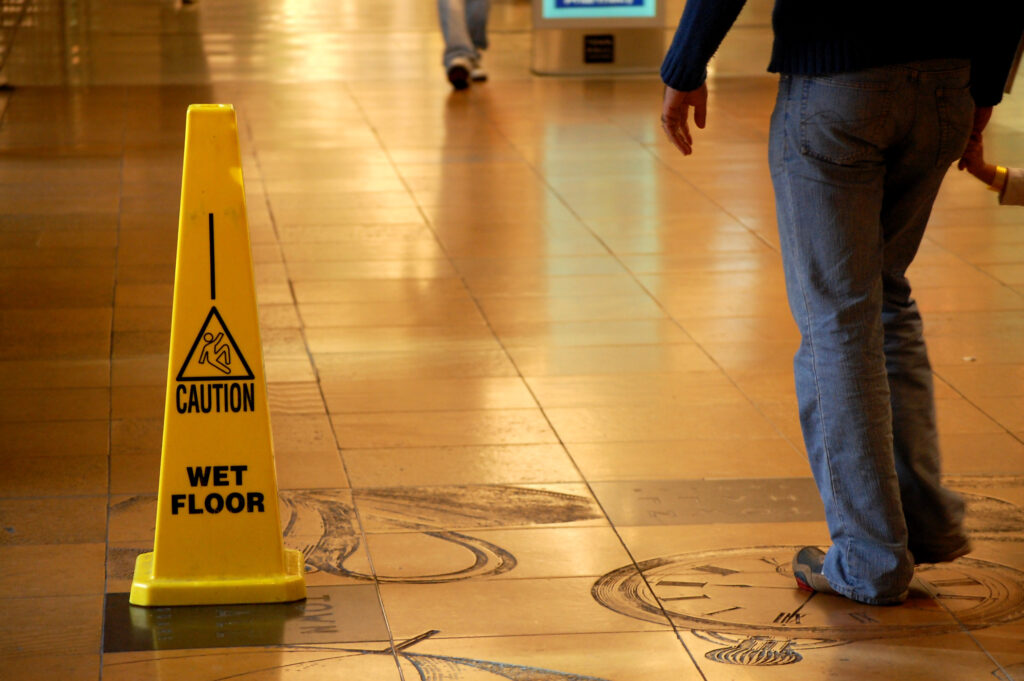 In many Wisconsin cities “property owners and occupants of private property (commercial and residential) are required to clear sidewalks abutting their property of snow or ice within 24 hours after snow has stopped falling,” or may otherwise face fines due to the unsafe nature of the sidewalks which are not cleared.
In many Wisconsin cities “property owners and occupants of private property (commercial and residential) are required to clear sidewalks abutting their property of snow or ice within 24 hours after snow has stopped falling,” or may otherwise face fines due to the unsafe nature of the sidewalks which are not cleared.
This requirement sounds like it places responsibility on the property owner, the tenant that lives there, or another occupant in the building to ensure the sidewalks are safe for use. But liability isn’t that clear cut, and in many slip and fall cases, it’s not clear cut at all.
Let’s dive into why deciding fault is not straightforward in these types of cases.
First, commercial slip and fall cases may have multiple at-fault parties. This means more than one person is responsible for the accident. Some of the people that may be responsible are: the property owner (this person doesn’t even have to be on the property at the time of the accident!), the manager of the business, the employees who were tasked with shoveling snow, removing snow, or ensuring the sidewalks were iced—these people may also be tasked with hiring someone to do these jobs for them.
Knowing who is responsible is only one step in filing a slip and fall claim in Wisconsin, and you may want to consider a slip and fall lawyer, such as the ones available at Hickey & Turim SC, as they have the experience to pick apart who is responsible.
Not only do you need to know who is responsible, but you have to meet certain liability criteria, as well. Some such criteria that must be met—one of the three, at least—are that the property owner or commercial occupant caused the dangerous surface; the property owner or commercial occupant knew about the surface but failed to take measures to make it less so; or the property owner or commercial occupant should have known the surface would be slippery reasonably, because anyone maintaining the property could see that it was unreasonably unsafe.
Furthemore, deciding liability criteria relies on the weather, too. Say it’s snowing, then the very first criteria would not be grounds for liability. You cannot clear snow as it is falling. The second criteria, that the property owner or occupant knew the surface was slippery, is often used if the owner is off site but was aware of a snowstorm and took no measures to make the sidewalks safer. The third criteria is the most used, but it is often more open to debate than not.
Contact a Wisconsin personal injury attorney who deals with slip and falls to further determine how to file your case. Attorneys provide valuable insight into cases, and can answer questions that you, the client may have. Nothing is cut-and-dry, or set-in-stone, so it’s important to know every possible outcome.
You may even learn something about the law that you didn’t know before, and a lawyer will definitely make a claim or suit an easier process.


